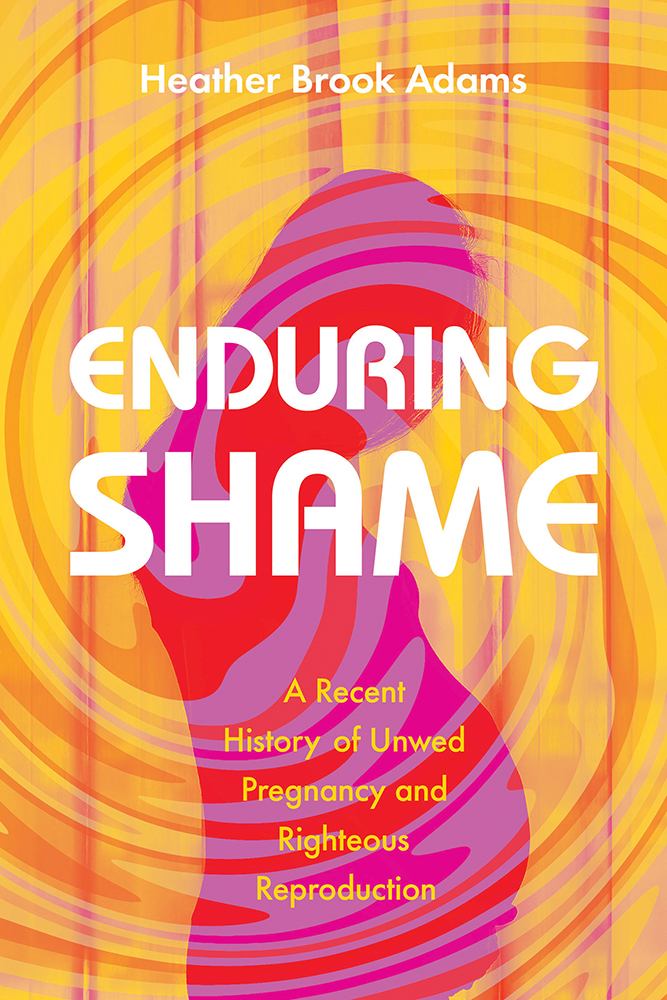Black History Month Sale: 40% off all books, plus FREE SHIPPING on all U.S. orders over $50 | Use code JBHM26

Size: 6 x 9
Pages: 252
Illustrations: 6 b&w halftones
Heather Brook Adams
The inclusion of this book in the Open Carolina collection is made possible by the generous funding of
"US women's reproduction has long served as a site for righteous judgment (think The Scarlet Letter), with women's bodies routinely politicized, controlled, and rendered either acceptable or shameful. At this cultural–political moment, when even The Handmaid's Tale seems conceivable, Heather Brook Adams translates her brilliant research into luminous prose that calls for us to speak back to proposals and policies that contain, judge, and shame women, their bodies, and their reproductive decisions."—Cheryl Glenn, author of Rhetorical Feminism and This Thing Called Hope
"Beautifully crafted from beginning to end, Enduring Shame presents an honest and rich assessment of unwed pregnancy in America. Heather Brook Adams expands on interdisciplinary scholarship addressing silencing, mothering, gender, politics, and ethos to create an engaging narrative that is at once groundbreaking in its treatment of pregnancy/shame and in seeking coalitional sexual and reproductive knowledge."—Lynée Lewis Gaillet, coeditor of Remembering Women Differently: Refiguring Rhetorical Work
"Accessible, compelling, and illuminating, Enduring Shame demonstrates how seemingly disparate stories of unwed pregnancy and motherhood, forced and coerced sterilization, access to birth control and abortion, and current attacks on reproductive rights are beholden to logics of 'righteous reproduction' that weaponize shame to police women's reproductive bodies. This book will be of great interest not only to rhetorical and feminist scholars but also to healthcare workers, social workers, policymakers, and advocates for reproductive justice."—Marika Seigel, author of The Rhetoric of Pregnancy
"Heather Brook Adams's important feminist historiography reveals the reverberating rhetoric of shame that shapes women's reproductive lives, particularly the lives of 'unwed' mothers. Thoughtful, theoretically rich, and timely, Enduring Shame will captivate readers interested in rhetoric of emotion, motherhood, and reproductive justice."—Jenna Vinson, author of Embodying the Problem: The Persuasive Power of the Teen Mother
Winner of the 2024 Winifred Bryan Horner Outstanding Book Award
Copyright 2026
Website By Morweb.org